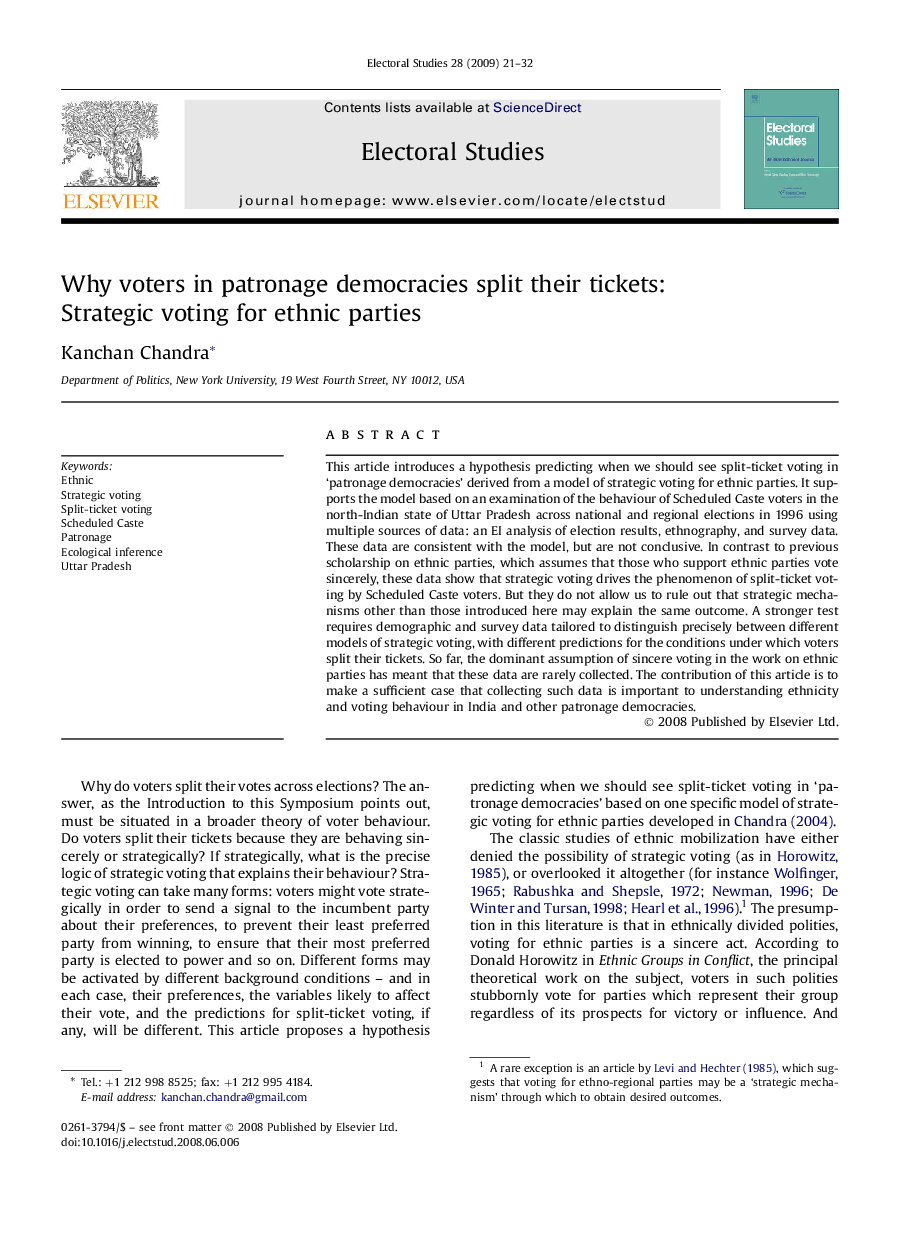| Article ID | Journal | Published Year | Pages | File Type |
|---|---|---|---|---|
| 1052360 | Electoral Studies | 2009 | 12 Pages |
This article introduces a hypothesis predicting when we should see split-ticket voting in ‘patronage democracies’ derived from a model of strategic voting for ethnic parties. It supports the model based on an examination of the behaviour of Scheduled Caste voters in the north-Indian state of Uttar Pradesh across national and regional elections in 1996 using multiple sources of data: an EI analysis of election results, ethnography, and survey data. These data are consistent with the model, but are not conclusive. In contrast to previous scholarship on ethnic parties, which assumes that those who support ethnic parties vote sincerely, these data show that strategic voting drives the phenomenon of split-ticket voting by Scheduled Caste voters. But they do not allow us to rule out that strategic mechanisms other than those introduced here may explain the same outcome. A stronger test requires demographic and survey data tailored to distinguish precisely between different models of strategic voting, with different predictions for the conditions under which voters split their tickets. So far, the dominant assumption of sincere voting in the work on ethnic parties has meant that these data are rarely collected. The contribution of this article is to make a sufficient case that collecting such data is important to understanding ethnicity and voting behaviour in India and other patronage democracies.
